Compare Length
You can use the Compare Length tool when you want to compare the lengths between two or more segments. Length comparisons can be applied to all sizes of a piece, for example, you can compare the length of an armhole seam with a sleeve seam. The total armhole seam equals the length of the back armhole seam, plus the length of the front armhole seam. The combined measurement of the front and back armhole seam is then compared to the sleeve seam.
There are a few different ways to select pieces when using the Compare Length tool. You can use the Select tool and drag from point to point, you can use the Select Segment tool to select anywhere on a segment, or you can select two pieces using the Selection Rectangle.
You can also add or subtract by using the Plus/Minus signs, or you can press the Shift /Ctrl buttons on your keyboard.
You can now also use the new right click menu items Copy and Paste, or the keyboard shortcuts to apply values from the Compare Length table to other elements such as notch grading etc...
Icon & Location
To use the Compare Length tool:
-
Open the Compare Length tool.
The Compare Length dialog appears and the mouse cursor changes into a selection cursor: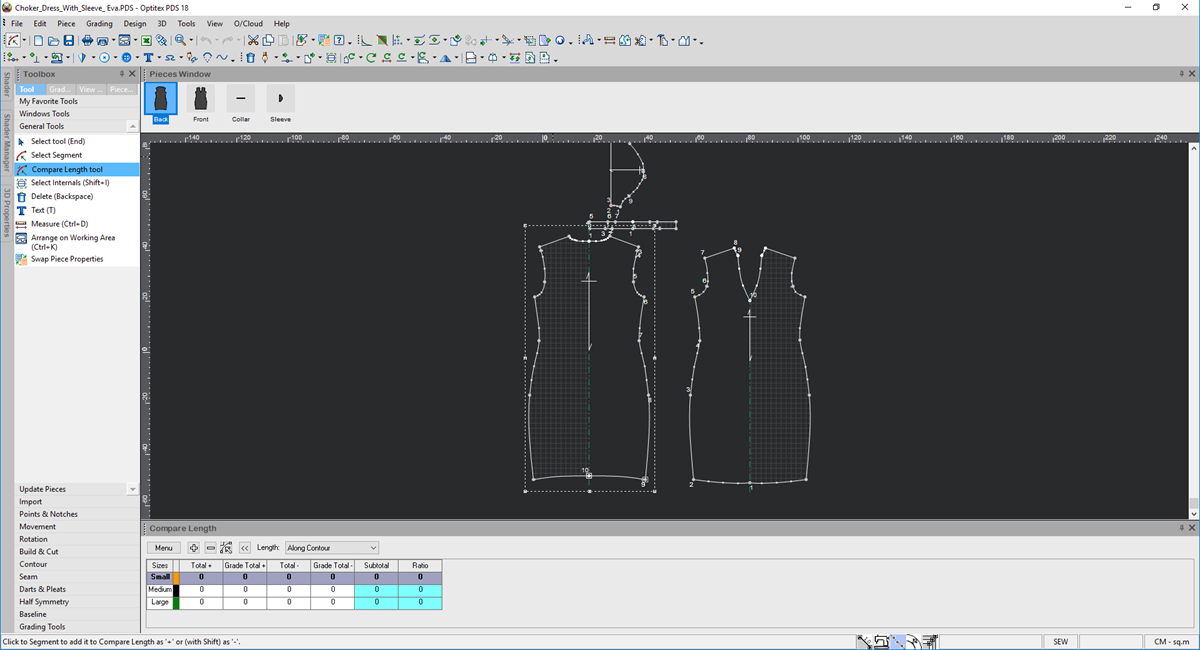
-
View the fields/buttons in the Compare Length dialog as follows:
Field
Description
Add (+)/ Subtract (-)
Allows you to add / subtract the selected segment to a new column.
Segment Length
Length
Allows you to define the measurement length. It is advised to leave the default Along Contour.
Along Contour:Adds the distance from the first and last point, along all the points and curves.
Along Straight: Adds the distance from the first and last point, along a direct line.
By X: Adds the distance from the first and last point, along the X axis.
By Y: Adds the distance from the first and last point, along the Y axis.
Sizes
Displays all the available sizes in the style file.
Total
Displays the length of the selected segment.
Grade Total
Displays the difference between sizes.
Subtotal
Subtracts the difference between the added and subtracted values.
Ratio
Displays a proportion of ease/gathering in each size.
Menu
Update
Allows you to update the measurements after making changes to a segment.
Clear
Allows you to delete all the data from the table.
Report to Excel
Allows you to send the information to an Excel report.
Print
Allows you to send the information to a printer.
-
Select the first segment for comparison (we will select the armhole of the front piece) and then press the plus sign at the bottom left side of the dialog box. (Notice that the segment length for each size displays under the + sign column.)
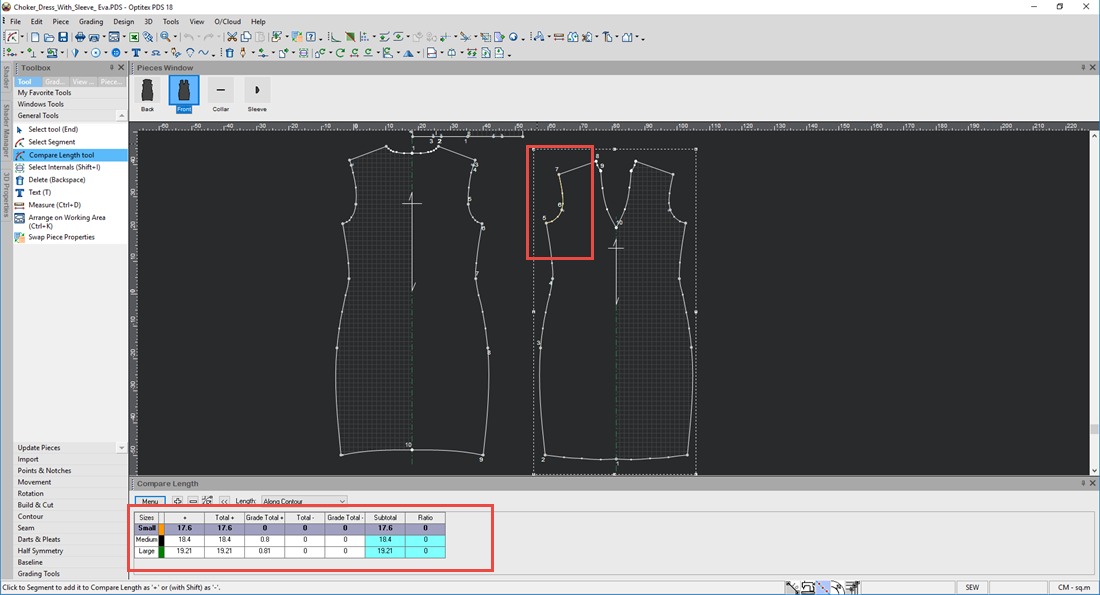
-
Select the segment to compare to the first segment (we will now select the armhole of the back piece)
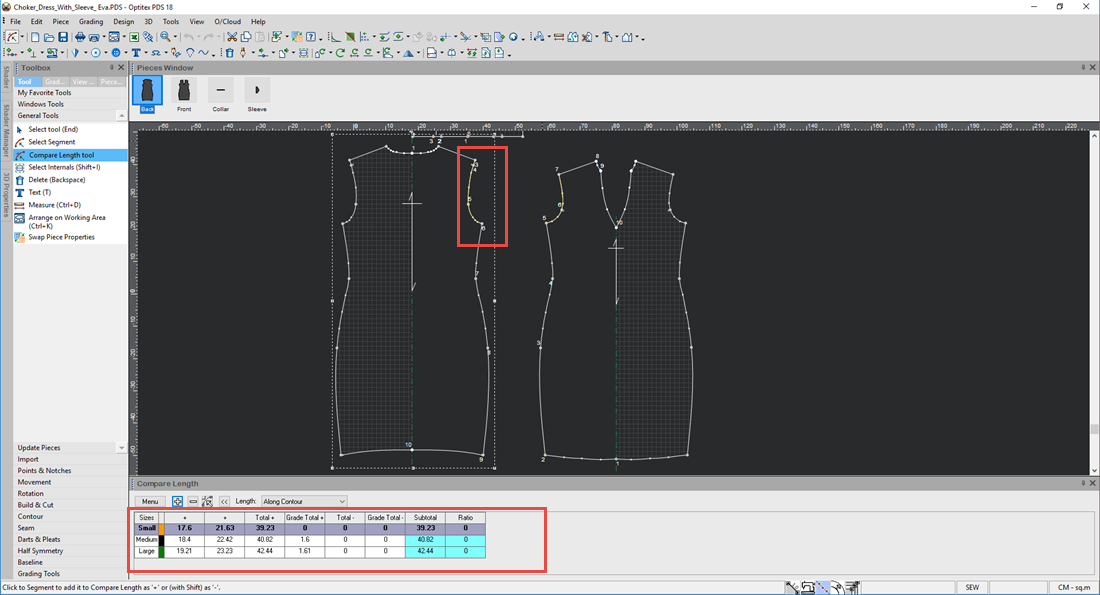
-
While pressing down Shift, now select the segment of the sleeve cap (you can click the minus sign instead if you prefer).
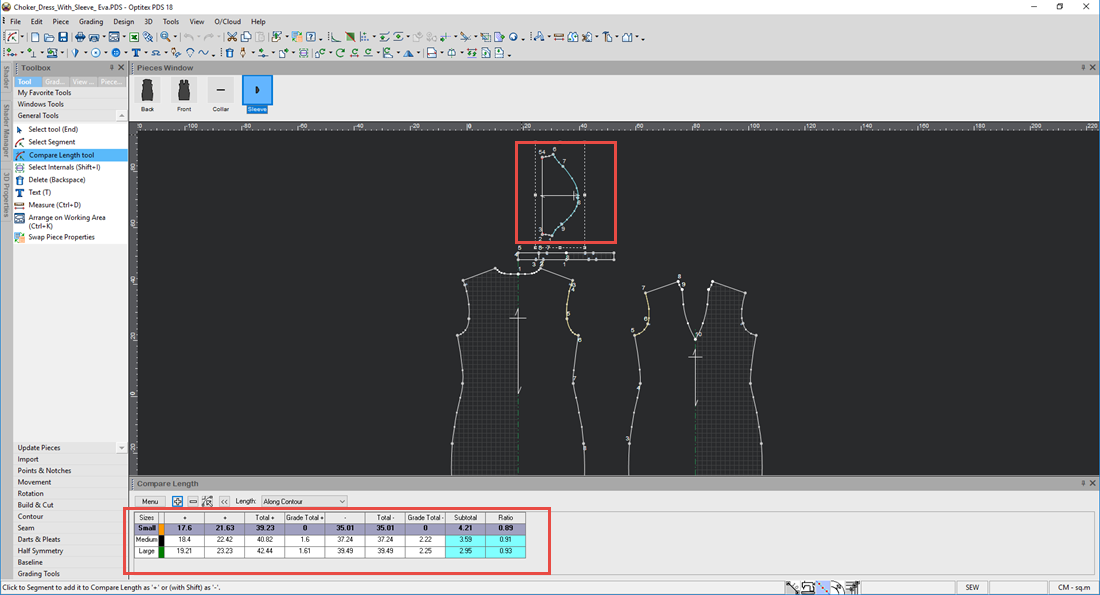
 Note:
When an internal segment is connected to a contour segment, you can
select the internal before taking the length. This will avoid the
contour length.
Note:
When an internal segment is connected to a contour segment, you can
select the internal before taking the length. This will avoid the
contour length. -
In the above example, the Compare Length table contains the following information:
+
Segment of armhole in front.
+
Segment of armhole in back.
Total +
The total length of armhole front + back.
Grade Total +
The difference between sizes.
-
Segment of sleeve cap.
Total
The total length of the sleeve cap.
Grade Total
The difference between sizes.
Subtotal
The difference between the added and subtracted values (armhole minus the sleeve cap).
Ratio
The proportion of ease/gathering in each size.
-
You can modify your segments and later go to Menu> Update to obtain the new lengths.
-
You can copy the values to other applications such as Excel, by using the Copy option.
-
To remove all the lengths from the measurement table, go to Menu > Clear.
Compare Length: Copy/Paste functionality
You can now use the new right click menu items Copy and Paste, or the keyboard shortcuts to apply values from the Compare Length table to other elements such as notch grading etc...
To copy compare length values:
-
In the compare length table, select a column.
-
Use Ctrl+C or right click and Copy
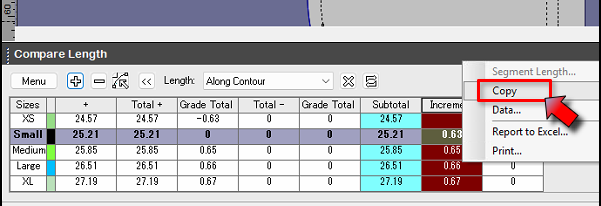
-
In the grade notch table Select the corresponding column a use Ctrl + V or click and Paste
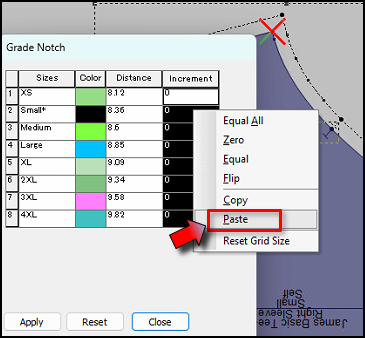
 See also: Getting to Know Optitex PDS 2D
See also: Getting to Know Optitex PDS 2D